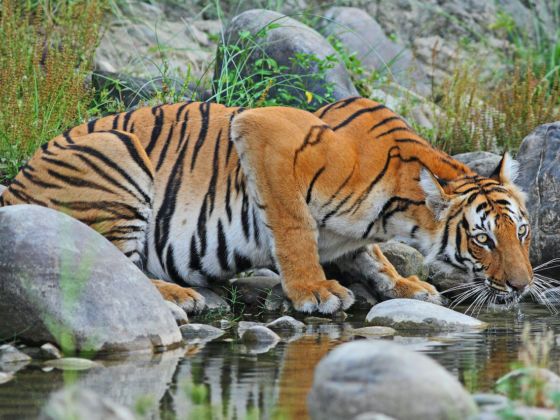This is The Climate Win, the most positive sustainability news around the world every week.
Biodiversity is essential for a healthy climate. Over the past two months, we’ve covered multiple stories of animals re-populating places both wild and domestic throughout the coronavirus pandemic, as we’re all stuck inside. The question must shift to what happens after humans step outside their self-isolation and limited ventures for necessities. We don’t have the answer. But some recent developments — combined with the virtual virality of flamingos taking over Mumbai and therapy alpacas calming the nerves of stressed Californians — hint at increasing public awareness of the cause.
